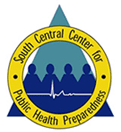Two Years Later: Continued Psychological Difficulties of First Responders and the Affected General Population

Course Description:This course examines the continued psychological and adjustment issues in the population affected by Hurricane Katrina. The impact of the disaster on the first responders to Katrina is also discussed.
Category
- Behavioral Health
Format
- Self-study / Enduring
Credits
- 2.00 Participation/CE
Understanding and Responding to the Needs of Children After Large-Scale Disasters

Course Description:As communities across the country are planning and preparing their responses to large-scale disasters (natural, chemical, biological, radiological, nuclear, explosive), special attention needs to be paid to populations considered at high-risk for negat
Category
- Behavioral Health
Format
- Self-study / Enduring
Credits
- 2.00 Participation/CE
Consequences of a Foreign Animal Disease on the Rural Community

Course Description:The food industry, including livestock, is one of the most open industries in North America, and is readily susceptible to outbreaks of Foreign Animal Disease (FAD).
Category
- Behavioral Health
Format
- Self-study / Enduring
Credits
- 2.00 Participation/CE
The Pharmacist's Role in Disasters

Course Description:Hurricanes, tornadoes, bioterrorism, and pandemic flu are all examples of events that create emergencies for the public health system. Such events have disrupted the lives and healthcare of thousands of individuals and will do so again in the future.
Category
- Behavioral Health
Format
- Self-study / Enduring
Credits
- 2.00 Participation/CE
Improving Disaster Communication: The Role of Poison Centers in Public Health

Course Description:Disaster and mass event situations can lead to uncertainty, fear, anxiety and stress. In these situations, community members need effective and timely information.
Category
- Behavioral Health
Format
- Self-study / Enduring
Credits
- 2.00 Participation/CE
Alternative Standards of Care in Disaster

Course Description:Emergency events and disasters require the affected population to adapt to rapidly changing circumstances including an often abruptly limited scope of public health services.
Category
- Behavioral Health
Format
- Self-study / Enduring
Credits
- 5.00 Participation/CE
The Management of Epidemic Disease

Course Description:Population growth, societal aging, urbanization, rapid transportation, economic interdependence, and emerging infectious disease have expanded community vulnerability far beyond what could have been imagined a few generations ago.
Category
- Behavioral Health
Format
- Self-study / Enduring
Credits
- 5.00 Participation/CE
Bioterrorism Preparedness: Principles of Emerging Infectious Diseases

Course Description:Infectious diseases have regained public health significance with the emergence of HIV/AIDS and other new infections in humans.
Category
- Behavioral Health
Format
- Self-study / Enduring
Credits
- 8.00 Participation/CE
Bioterrorism Preparedness: Infectious Disease Epidemiology and Public Health Surveillance

Course Description:In recent years, infectious disease epidemics such as malaria, tuberculosis, HIV/AIDS, and SARS in both industrialized and developing countries have underscored the importance of infectious disease control and prevention.
Category
- Behavioral Health
Format
- Self-study / Enduring
Credits
- 6.00 Participation/CE
Disaster Responder Health and Safety

Course Description:The Disaster Responder Health & Safety Course will address concerns for the safety and health of first responders involved in the response to natural disasters including hurricanes, tornadoes, and floods and will include the identification of speci
Category
- Behavioral Health
Format
- Self-study / Enduring
Credits
- 6.00 Participation/CE

 Facebook
Facebook Twitter
Twitter LinkedIn
LinkedIn Forward
Forward